There is nothing more deceptive than an obvious fact: Arthur Conan Doyle
Imagine a party hall, a birthday party in progress. Children screeching and screaming, running helter-skelter. Snacks forgotten. Sound levels reach a high point. And suddenly, with one announcement, all children settle down. Total hush descends on the audience; & from the wings comes, dancing, THE MAGICIAN!!!

From his hat comes out a seemingly unending handkerchief. Hat is put back on the head. Lo and behold!! when he takes it off with a flourish, out fly 2 pigeons. And even as the children are agog, many more magic tricks with balls, bells and fire regale the audience. Why only children, we all love to watch David Copperfield carve a woman into two! We know it is all false, but we are totally taken in by the deceptions mounted live or on TV.. This fascination has been the same from Houdini’s days till now! Charming deceptions…. Gullible lies…. Enjoyable subterfuges.

Yet deception is always not welcomed. “Oh, what a tangled web we weave, when we first begin to deceive!!” Walter Scott admonished in Marmion ages ago. But, if you look around, we do not seem to have got the message yet!! Deceptions continue unabated. Truth and propriety are out of fashion. Possibly the last bastion of only Philosophers & Theorists. Under the guise of practicality and expediency, you see corners being cut, reality being twisted & turned and deception becoming the norm of our mutual dealings. What prompts deception? why do we travel this self-defeating path?? Really worth thinking about!!
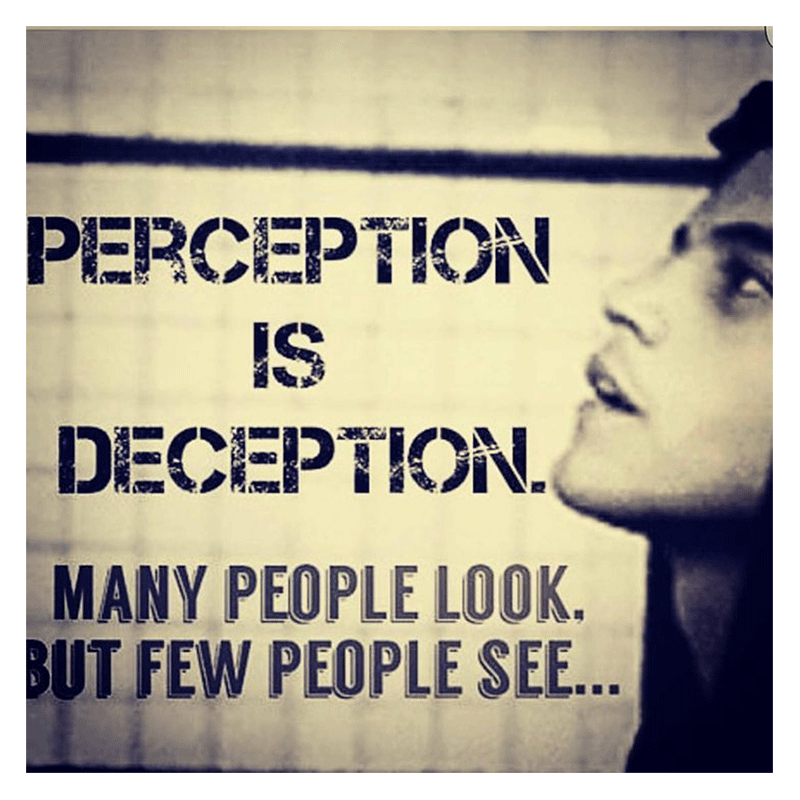
Webster defines Deception as “the act of causing someone to accept as true or valid what is false or invalid, the act of deceiving”. Deception refers to the act—big or small, cruel or kind—of encouraging people to believe information, that is not true!! Magic shows are the most charming creation of alternate reality. So are movies… Bollywood or Hollywood. We happily get into the magic world of cinema and make believe & even after the movie is over, we find it difficult to shake our heads out of the make believe world, we were a part of in the darkened cinema halls.
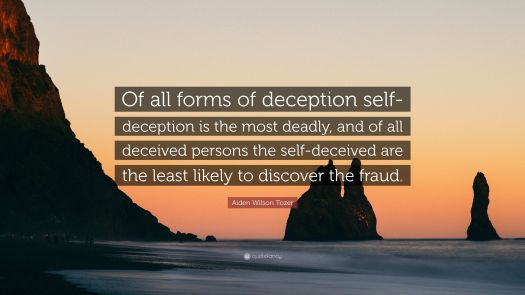
But deception always is not so innocuous. Lying is a common form of deception—stating something you know to be untrue, with the intent to deceive. While most people are generally honest, even those who subscribe to honesty engage in deception sometimes. Studies show that the average person lies several times a day. Some of those lies are big (“I have never cheated on you!” ” I never lie”) but more often, they are little white lies (“That dress looks fine” ” You look slimmer after the diet program”) used to avoid uncomfortable situations or spare someone’s feelings. Every reader can look within and confess: breathes there a man, or woman, who has never lied?
According to one count the English language has 112 words for deception: Trickery, fraud, deceit, hypocrisy, cunning, treachery, guile, duplicity, insincerity, legerdemain, dissimulation, craftiness, fraudulence, lie, cheat, bluff, sham, snare, hoax, decoy, ruse, artifice, subterfuge, canard, feint, wile, hokum, leg-pull, imposture, snow job or even porky. Language reflects social mores and norms: so what does that statistic tell us about how often we practice or come face-to-face with deceit? Good? Bad?? Ugly??? or is it just our social reality?

Admittedly, trust is the bedrock of all social life. Whether it is a 1-on-1 interaction of a Mother & Child, or 2 lovers romancing one another, trust is a sine qua non of social interaction. Even Organizations and Governments are built of trust and mutual belief. In any of these micro or macro relations, deception is frowned upon. Deception undermines Trust. This is fundamental. And since a shared view of reality, is essential to all human enterprise, Truth prevails. Still, at the macro level, look at the statistics WHO publishes about Prevalence of COVID19 across geographies; or the statistics on Education or Employment that different Governments publish. Do you believe the BPL (Below Poverty Line) numbers your country publishes?

Action plans and future directions are predicated on these published data points. What if you cannot trust them? What if vested interests are manipulating the data? At the absolute micro level, think how life would change for a teenaged girl based on how she interprets ” I love you” said by her friend. Is he truthful? Can I trust? What if he is cheating me? Deceit can take Life on very very different paths. Remember the Ministry of Propaganda (Misinformation) that Goebbels ran so effectively for Hitler. Even today’s governments & organizations have a lot to hide. Which is Julian Assange’s claim to fame through WikiLeaks. We are never so easily deceived as when we imagine we are deceiving others Rochefaucauld warns us in his Maxims.
There are sins of commission and sins of omission; omitting information and concealing the truth are considered lies when they are done with an intent to deceive. In addition to statements that are false, deception encompasses statements that misrepresent or distort facts as well as the withholding of information. Recollect the Mahabharata where Dharmaraj himself deceived his Guru: अश्वथामा हतो, नारो वा कुंजारोवा अहम नाही जIनंती People can lie through outright statements or by strategic silence. Krishna’s deceptions changed many a history, but his most charming deception was making every Gopika feel he was dancing only with her, playing the flute purely for her joy!!
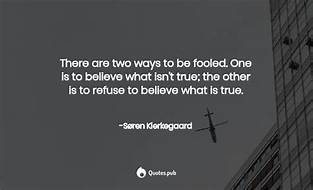
Lies are like wishes—often, what is said are things we wish were true. Recollect your answer when someone asks you your weight… the answer is always aspirational!! Or your reply to wife’s query ” how many drinks have you had today?” Is the answer ever true? A large body of research identifies three major reasons why people lie: to get something they want, so-called instrumental reasons; to protect or promote themselves; and to harm others. Avoiding punishment may be the main motivation for both children and adults. This applies uniformly to personal and professional lives. When the boss asks about the progress of an important project, on a scale of 1 to 10 for truthfulness, where does your answer lie? Remember, truth is always easy. It is Deception which is difficult. Ask any politician or an advertising executive!!
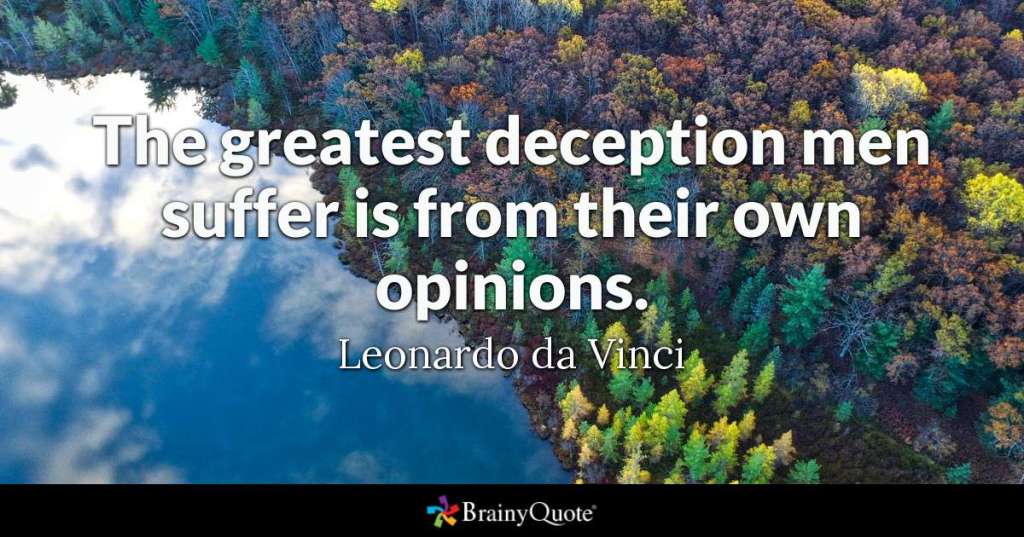
So is deception good or bad? Can we avoid it totally and become Raja Harishchandra in real life? Is deception, exaggeration or hiding the truth, the social grease that makes the wheels go around smoothly? I leave it to the reader to decide where he stands on this one. But if someone tells me he has ALWAYS been truthful, and NEVER deceived even a whit, I would say GET A LIFE! The social reality of today is a “fabricated” reality, a manufactured one depending on what you are playing for, and with whom. Truth is a destructive, burning ball of fire and deception is smoothening the sharp edges, sugar coating it where required, reducing the burn or the heat if you will….and ensuring people move towards a shared reality, maybe cut and pared at its edges, different from the Original, but something which helps us all to coexist and work together.
Celeste Epiphany-Waite sings it so beautifully
Hear my voice, Hear my Dreams/ Let us make a world, In which I believe
Hear my words, Hear my cry/ Let me see a change, Through these eyes
Hear my voice, Hear my dreams/ Let us make a world, In which WE believe
Remember Baudelaire: “The devil’s finest trick is to persuade you that he does not exist.”
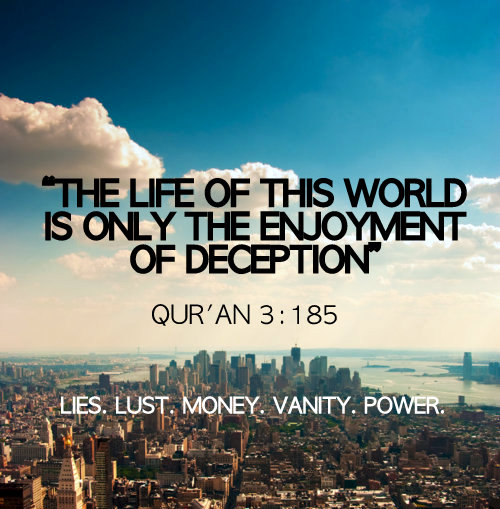
Do not be deceived: vikibaba punter


